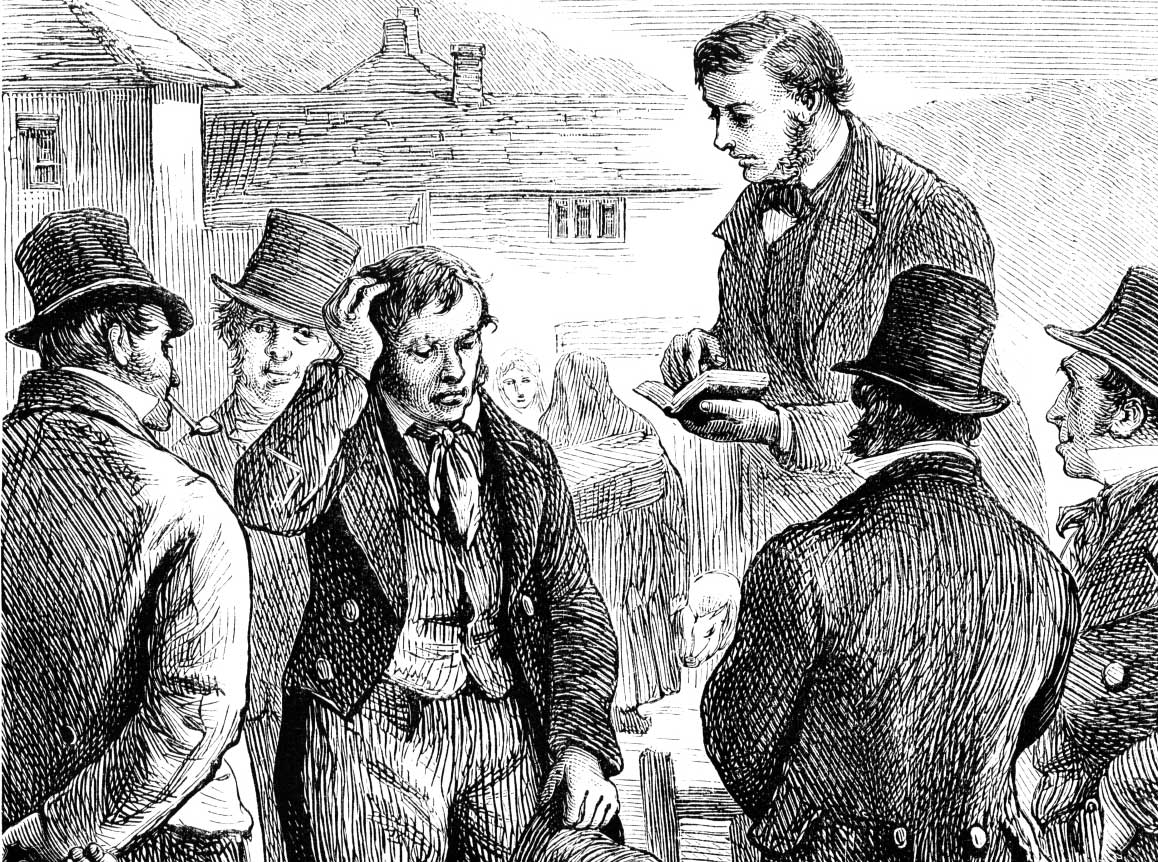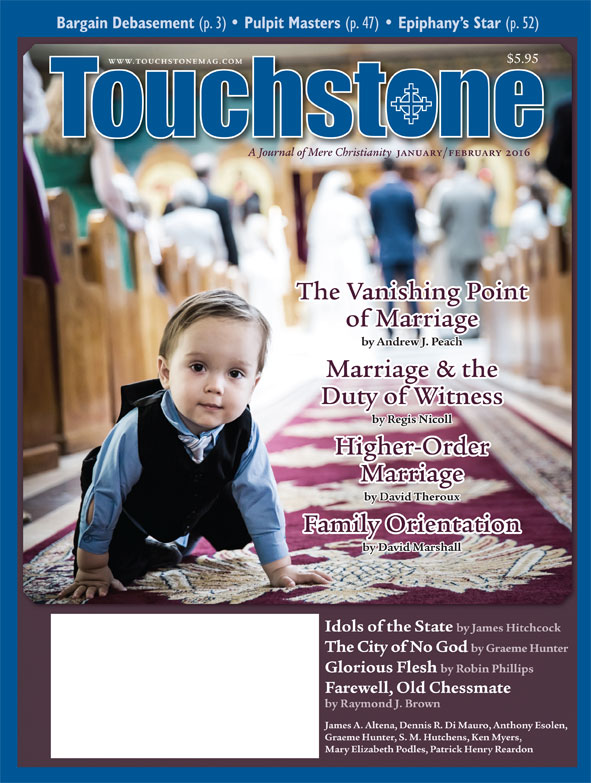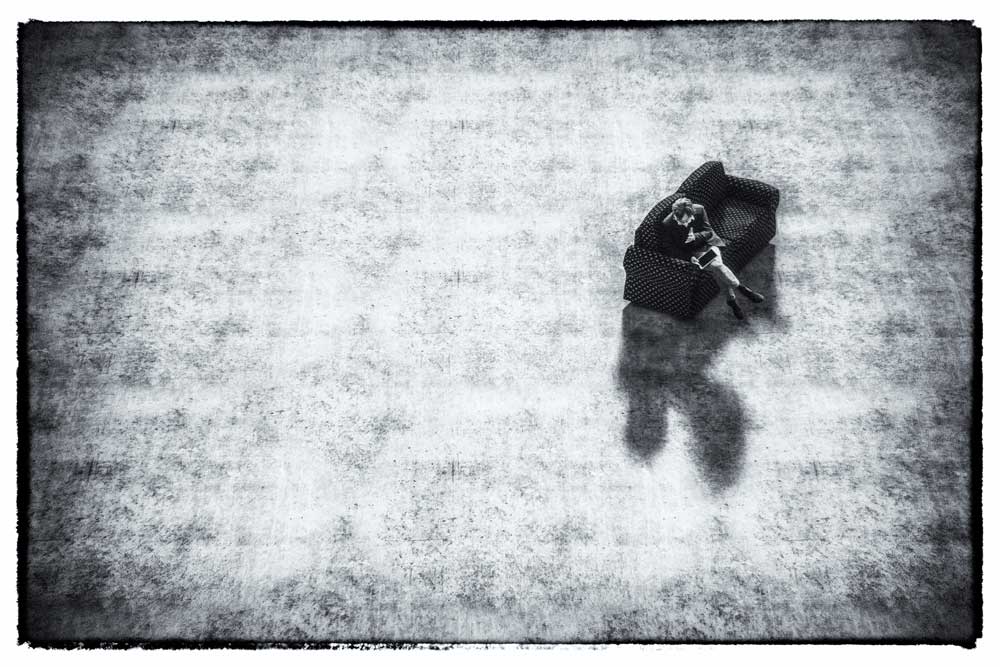View
Wilberforce for Good
Regis Nicoll on Marriage, Moral Corruption & the Christian Duty of Witness
Following the legalization of so-called same-sex marriage in Obergefell v. Hodges, there has been a lot of chatter among social conservatives. Some, including a number of Republican presidential hopefuls, are pushing for a constitutional amendment to overturn the decision. Others are suggesting that articles of impeachment be initiated against the justices. Many are looking to the ballot box, believing that if we elect officials who respect the rule of law and embrace conservative values, the country will pull out of its moral tailspin.
Nearly all are placing hope in some political solution. But if history has taught us anything, it is that political affiliation, policies, and fixes are no guarantee that conservative values, like the sanctity of life and natural marriage, will be upheld.
Recalling History
Persons of a certain age will recall that, as governor of California, Republican Ronald Reagan pioneered "no-fault" divorce in 1969. Four years later, Roe v. Wade was decided in a Republican administration by a Supreme Court in which six out of the nine justices had been installed by Republican presidents. And let's not forget Justice Anthony Kennedy, the man who has often been the swing vote in decisions against socially conservative positions over the last three decades. He was appointed by President Reagan.
Yet none of those actions originated in the grey matter of our government leaders; rather, they percolated from the soil of our moral consensus. That's because law and politics are reflections of society's cultural values, not the other way around.
When the Supreme Court took us over the "gay marriage" Rubicon in 2013 by overturning the Defense of Marriage Act (DOMA), public approval of its legalization had reached 50 percent. But neither the ruling nor popular sentiments were the problem, only symptoms of it.
The problem, as evidenced by the incidence of, and even attitudes concerning, non-marital sex (among other things) in the Christian camp, is the Church's neglect of its foremost duty: to form believers whose lives reflect the teachings and example of Christ. The failure of Christians to exemplify the standards of sexual morality they demand from homosexuals goes a long way toward explaining the waning moral authority of the Church and the growing acceptance of homosexuality.
The Results of Neglect
Indeed, in the two years following the DOMA ruling, support for same-sex marriage increased by seven percent. With 59 percent of the general public favoring it, Fortune 500 companies like Wal-Mart, Apple, Starbucks, and Target have come out boldly for "marriage equality." Having read the collective moral conscience correctly, a number of corporate titans have successfully pressured legislators for anti-discrimination laws and have threatened to cease doing business in states promoting religious liberty—all without consumer pushback or loss of market share.
In the same two-year period, the number of states legalizing same-sex marriage skyrocketed, from nine to 37. While all but three of the decisions were by judicial fiat or legislative decree, it is doubtful, given the rapid shift in popular attitudes, that the results of public referenda would have been markedly different.
By Way of Explanation
As to how it has come to this, First Things editor R. R. Reno observes that "homosexuality plays a very important symbolic role in the moral imaginations of heterosexuals." And it's not the role you might suspect.
Reno explains, "When it comes to sex and transgression, their [homosexuals'] freedom from moral censure guarantees ours [heterosexuals]. Which is why gay rights are so very popular among the America elites who can't imagine themselves as anything other than good people" and, I might add, who equate the social approval of homosexuality with the moral acceptance of their own sexual peccadilloes.
Reno's observation is on the mark, with one exception. The popularity of gay rights isn't limited to elites; it extends to common folk, including mainline Protestants and Catholics at levels (62 and 56 percent, respectively, according to a June 2015 Pew Center poll) consistent with the general public.
When the behaviors and beliefs of Christians mirror those of their unbelieving neighbors, it is evidence that the Church is a product of the culture it is called to transform, and that instead of producing disciples, it has been turning out "belonging nonbelievers," if not "functional atheists."
So, if you want find fault for the recent Court ruling, look no further than the doorstep of the Church and a decades-long ethos of non-discipleship Christianity. The thing is, the solution to our national condition starts at the same threshold.
No one knew that better than the British abolitionist William Wilberforce.
Changing the Culture
In the eighteenth century, Great Britain was the great world power, as is the United States today. But it was also a country marred by rampant alcoholism, prostitution, political corruption, and the social injustices of hazardous factories, sixteen-hour workdays, and child labor. Crime, vice, and corruption were so bad in London that the city earned the epithet, "the devil's drawing room." On top of that, Britain was the world leader in the slave trade, a moral failing that Wilberforce sought to correct.
As a young parliamentarian, Wilberforce realized that while politicians and their policies bore responsibility for the execrable conditions of the day, they were not the cause of those conditions. The cause was the moral decline of society, which was owed, in large part, to the failure of the Church.
At the time, the Church of England was in full retreat from historical Christianity. Pew and pulpit were marked by nominal-to-heterodox beliefs. Lay non-attendance was widespread, as was clerical neglect of congregational care.
Particularly telling is what a pastor of the day, Joseph Milner, had to say about church leadership: "It is an affecting consideration to reflect what a number of clergymen there are whose lives demonstrate them to be wholly devoid of any religious sensibility whatever . . . [and without] any concern for their own salvation or that of the flocks committed to their charge."
Wilberforce knew that without a "reformation of manners," or what we might call the restoration of moral norms, ending slavery would be a lost cause. So he and a group of likeminded Christians pursued a dual track: they pushed for abolition while also establishing dozens of volunteer organizations devoted to raising the moral pitch of the culture.
Although it took nearly fifty years, Wilberforce witnessed the end of the British slave trade and the beginning of the Victorian era—a period marked by an uncommon commitment to personal moral formation.
Our current situation holds some remarkable parallels. Yet, to the modern mind, a 50-year struggle is unthinkable. Raised in the media era, where the thorniest problems are solved in a 30-minute program if not a 30-second commercial, we've come to expect quick fixes for everything from bad breath to the War on Terror. Any problem older than last week's news strains our patience. We are a people who trust that there is no challenge a little technology and political will can't solve.
And yet, we didn't get here overnight, or over the last six years. The condition of our national soul took decades to degenerate, and it will take decades to restore it—not one, two, or three election cycles, or until the "right" people dominate all three branches of government. Decades.
No Quick Fix
I could imagine that, like the Babylonian captivity of ancient Israel, which was the consequence of national sin, we are 10, 20, or 30 years into a 70-year "exile" period, with 40 years or more to go. If so, there is no easy fix, no shortcut, no end-run around.
According to George Barna, scarcely three percent of American Christians could qualify as a "disciple" in the sense that "they have surrendered control of their life to God, submitted to his will for their life, and devoted themselves to loving and serving God and other people." If Barna is right, then the most urgent need for the Church today is not to evangelize the lost (as important as that is), but to re-evangelize the "saved."
Imagine if the discipled population were increased three-, five-, or ten-fold over the next decade; what might happen if the majority of professed Christians were also practicing Christians—believers whose works and words aligned with the teachings of Jesus? I suspect that we would see a kingdom movement not experienced since the time of the early Church.
To achieve that, we can't just do more of what we've always done, or get better at doing it; we will have to do something radically different from "church as usual."
The allurements of imposing edifices, celebrity preachers, and state-of-the-art multi-media systems may fill the pews and stuff the coffers, but apart from a discipleship process integrated into the fabric of church life, they will not lead to faith that transforms.
This means a move from a program-driven model of church growth to a process-oriented model of kingdom growth. Starting with spiritual formation, it is the long game of "building" people whose lives are marked by personal holiness and a commitment to kingdom principles in every dimension of human interest for the redemption of individuals and "nations" through the institutions and artifacts that shape them.
It includes modeling sexual purity and the sacramental essence of marriage, and being witnesses ("martyrs" in the Greek) by profession and practice to the faith once given, even in the face of martyrdom—not by lions in a state coliseum or by fire in a village square, but by increased discrimination, marginalization, and criminalization.
Are we prepared for that? Are we prepared to bear the cost of social shunning, unemployment, lawsuits, jail, or worse? Are churches whose tax exemptions are threatened—especially struggling churches with already low giving levels—prepared to forsake property, buildings, and professional staffs in order to remain faithful to their mission?
If the answer is "No," "It depends," or "We're not sure," one thing we can be sure of is that the domain of religious liberty will continue to shrink—from the public square, to the house of worship, to the family circle, to the temporal lobe.
Nothing Has Changed
In times like these, there is always a temptation to disengage from the culture and hole up in safe enclaves with the like-minded. But that would be wrong.
As best as I can make out, the Great Commission has no expiration date and no qualifiers. The charge for every Christian, in season and out of season, is as it was 2,000 years ago: to go and make disciples, beginning with those occupying the pew and pulpit.
Whether or not we have entered a 70-year exile, we are to be salt and light, to push against the gates of hell, and to advance the kingdom with the gospel, by both proclamation and practice. Anything less is a dereliction of duty, a desertion of our post. •
Regis Nicoll is a retired nuclear engineer and physicist who is a Colson Center Fellow and Christian commentator. He currently writes for BreakPoint, Crosswalk, and Salvo magazine, and serves as the lay pastor of an Anglican church plant in Chattanooga (www.hamiltonaf.org).
subscription options
Order
Print/Online Subscription

Get six issues (one year) of Touchstone PLUS full online access including pdf downloads for only $39.95. That's only $3.34 per month!
Order
Online Only
Subscription

Get a one-year full-access subscription to the Touchstone online archives for only $19.95. That's only $1.66 per month!
bulk subscriptions
Order Touchstone subscriptions in bulk and save $10 per sub! Each subscription includes 6 issues of Touchstone plus full online access to touchstonemag.com—including archives, videos, and pdf downloads of recent issues for only $29.95 each! Great for churches or study groups.
Transactions will be processed on a secure server.
more on marriage from the online archives
more from the online archives

15.6—July/August 2002
Things Hidden Since the Beginning of the World
The Shape of Divine Providence & Human History by James Hitchcock
calling all readers
Please Donate
"There are magazines worth reading but few worth saving . . . Touchstone is just such a magazine."
—Alice von Hildebrand
"Here we do not concede one square millimeter of territory to falsehood, folly, contemporary sentimentality, or fashion. We speak the truth, and let God be our judge. . . . Touchstone is the one committedly Christian conservative journal."
—Anthony Esolen, Touchstone senior editor











